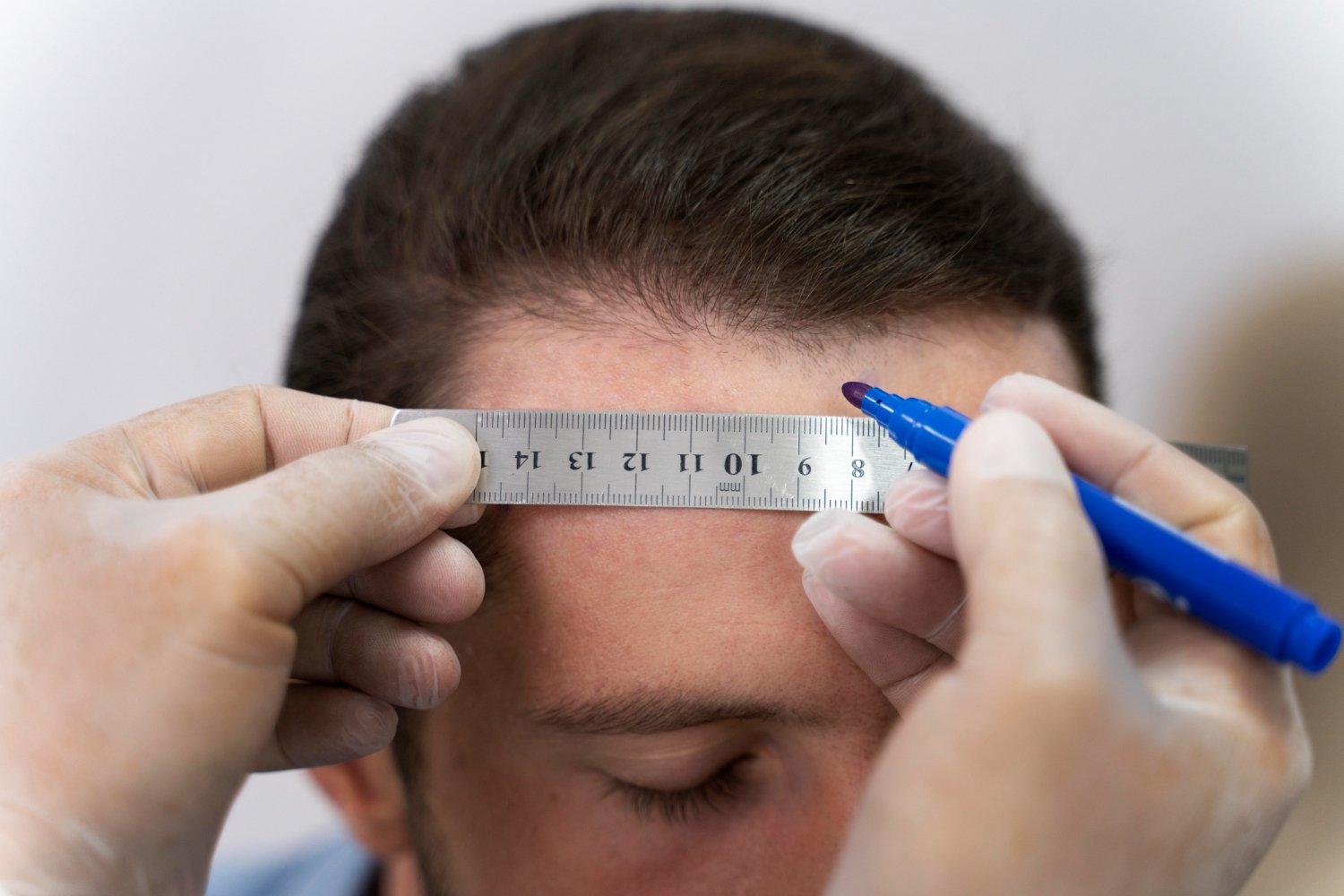What is considered a normal testosterone level for men? You might be surprised to know that many people ask us that very question. Are you feeling low on energy, not quite yourself mentally or physically? You’re not alone. Many men face these issues without knowing the root cause could be their testosterone levels.
Testosterone plays a key role in your well-being, impacting everything from your mood to muscle mass. Importantly, normal testosterone levels can vary widely among individuals, yet how you feel is crucial.
This blog post delves into what constitutes a normal testosterone level for men according to doctors and explores the effects of having levels that are too low or too high. We’ll share symptoms to watch out for and discuss testing and treatment options available.
Plus, we offer tips on lifestyle changes that might help balance your hormones naturally. Ready to learn more? Keep reading!
Normal Testosterone Levels for Men
Understanding the Role of Testosterone in Men’s Health
Testosterone plays a crucial role in men’s overall health and well-being. Age, lifestyle factors, and individual differences can influence testosterone levels.
Testosterone’s role in the body
Testosterone serves as a key hormone in the male body, playing essential roles across various physiological functions. It drives sexual desire, supports muscle and bone growth, aids in hair production, deepens the voice during puberty, and boosts red blood cell creation.
These functions underscore testosterone’s critical impact on both physical development and maintenance of male health.
The hormone not only influences men’s sexual health but also contributes significantly to their overall well-being. From ensuring the integrity of bones to fostering muscle strength and mass, testosterone stands at the helm of promoting vitality among men.
Its role extends beyond mere physical attributes; it fundamentally shapes aspects that define male characteristics throughout life.
Range of healthy testosterone levels
Understanding the pivotal role testosterone plays in the body highlights the importance of maintaining levels within a healthy range. The table below summarises the range of healthy testosterone levels for men, underscoring the significance of these figures in maintaining overall well-being.
|
Testosterone Level (ng/dL) |
Classification |
| Below 264 ng/dL | Low |
| 264 ng/dL to 1,000 ng/dL | Healthy/Normal |
| Above 1,000 ng/dL | High |
These figures serve as a guide for understanding where testosterone levels should ideally fall. Men exhibiting levels below 264 ng/dL may experience symptoms related to low testosterone. Conversely, levels above 1,000 ng/dL could suggest an excess, potentially leading to other health concerns. Maintaining levels within the specified healthy range is essential for ensuring the body’s systems function optimally.
Age-related changes in testosterone levels
As we move from discussing the range of healthy testosterone levels, it’s essential to look at how these levels shift over time. Testosterone naturally starts to decrease in men beginning in their 30s.
This decline happens gradually, affecting various bodily functions and possibly changing how individuals feel physically and emotionally.
Various factors can quicken this age-related decrease, including obesity, certain medications, injuries to the testicles, thyroid issues, chronic diseases, as well as opioid and steroid use.
Monitoring testosterone levels becomes increasingly important with age to maintain health and well-being.
Factors influencing the testosterone level for men
Several factors can influence the testosterone level for men, affecting their overall well-being. Understanding these can help individuals take proactive steps toward managing their health.
- Age plays a significant role, with levels typically declining after the age of 30. This natural decrease might impact various aspects of health and vitality.
- Body weight and obesity are crucial factors; excess fat can contribute to lower testosterone levels, which in turn affects energy levels and mood.
- Medications for other conditions can inadvertently alter testosterone production, leading to imbalances that might require adjustments or alternative treatments.
- Injury to the testicles, which produce testosterone, can severely disrupt normal levels. Protecting this area during sports and physical activities is vital.
- Thyroid problems often go unnoticed but can significantly impact hormone levels, including testosterone.
- Chronic diseases like diabetes or liver disease may impair the body’s ability to produce or utilise testosterone effectively.
- Usage of opioids and steroids for medical or non-medical reasons has been linked to lowered testosterone production over time.
- Fluctuations throughout the day are normal, with peaks usually occurring in the morning hours. Planning activities and understanding this pattern may help in managing energy better.
Each of these factors underscores the importance of regular medical check-ups and lifestyle adjustments aimed at sustaining healthy testosterone levels for optimal health.
Symptoms of Low Testosterone
Low testosterone can cause physical and emotional symptoms. For more information symptoms of a low testosterone level for men, read on.
Physical and emotional symptoms
Experiencing low testosterone levels can deeply impact a man’s physical and emotional well-being. Symptoms manifest in a variety of ways, affecting both the body and mind.
- Physical signs include low libido, highlighting a decrease in sexual desire that many men face.
- Muscle loss becomes noticeable as testosterone plays a crucial role in building and maintaining muscle mass.
- Men might feel unusually fatigued, lacking energy for daily activities despite adequate rest.
- Erectile dysfunction presents challenges in achieving or maintaining an erection, impacting sexual health and relationships.
- Individuals may notice difficulty concentrating, making tasks that require focus harder to perform.
On the emotional side:
- A tanking mood is common, with feelings of sadness or depression taking hold without clear reasons.
- Stress and anxiety may increase, often without directly identifiable causes.
These symptoms paint a picture of how a low testosterone level for men can affect various aspects of health and life quality. Addressing these signs early by seeking medical advice can make a significant difference. Next, let’s explore the importance of consulting with healthcare professionals for assessments and possible treatments.
Importance of seeking medical advice
Feeling off or noticing changes in your body may signal that something isn’t quite right. Men experiencing symptoms of low testosterone, such as fatigue and decreased libido, should promptly seek advice from a medical professional.
This step is crucial because self-diagnosis can often miss the full picture of what’s happening health-wise. A doctor can provide accurate testosterone level testing and discuss potential therapy options if levels are found to be low.
Doctors stress the importance of how one feels over specific numbers; nevertheless, knowing whether your testosterone falls within the healthy range (264 ng/dL to 1,000 ng/dL) can guide treatment paths.
Consulting a doctor ensures you receive expert guidance tailored to your unique situation and opens the door to effective treatments for balancing the testosterone level for men.

Symptoms of a High Testosterone Level for Men
A high testosterone level for men can lead to potential health implications, and it’s important to seek medical evaluation. For further information, read the full article.
Potential health implications
An elevated testosterone level for men can trigger a variety of health issues. Low sperm counts, mood swings, insomnia, and high blood pressure are common problems men may face. These symptoms not only affect physical health but can also disrupt emotional well-being and day-to-day activities.
Men experiencing these symptoms should consider seeking medical advice for evaluation. Doctors can provide guidance on managing high testosterone levels effectively. Lifestyle changes such as increased exercise, weight loss efforts, improved sleep patterns, stress reduction practices, and a healthier diet might help in regulating hormone levels.
Need for medical evaluation
High testosterone levels can lead to a range of potential health implications, making it crucial for individuals experiencing symptoms such as mood swings, decreased sperm count, or high blood pressure to seek medical evaluation.
Factors such as age, weight, medication use, and chronic diseases can all influence the testosterone level for men. Therefore, consulting with a doctor is important for an accurate diagnosis and tailored treatment options based on individual needs.
Testing and Treatment Options
Consult a doctor to discuss testing and treatment options for low or high testosterone levels, and read on for more information.
Importance of consulting a doctor
Consulting a doctor is crucial for determining testosterone levels and addressing any potential imbalances. It’s essential to seek medical advice if experiencing symptoms of low or high testosterone, as doctors play a key role in identifying the underlying causes and offering suitable treatment options.
They can guide individuals through lifestyle adjustments, testing procedures, and available therapies to help regulate testosterone levels. Additionally, consulting a doctor ensures that age-related changes in the testosterone level for men are monitored and managed appropriately, safeguarding overall health and well-being.
Available treatment options for a low and high testosterone level for men
Treatment options for low and high testosterone levels:
- Testosterone Replacement Therapy (TRT): This involves administering testosterone through injections, gels, patches, or pellets to restore normal levels.
- Medications: Certain medications can help stimulate the body to produce more testosterone or block the conversion of testosterone to estrogen.
- Lifestyle changes: Regular exercise, maintaining a healthy weight, reducing stress, getting adequate sleep, and following a balanced diet can naturally boost testosterone levels.
- Management of underlying conditions: Treating conditions like diabetes, obesity, and thyroid disorders can help improve the testosterone level for men.
Lifestyle Adjustments for Regulating Testosterone Levels
Adjusting your exercise, managing your weight, prioritising sleep, reducing stress, and maintaining a balanced diet is key to regulating testosterone levels. To learn more, read the full article.
Exercise, weight management, sleep, stress reduction, and diet
Exercise, weight management, sleep, stress reduction, and diet play a crucial role in regulating testosterone levels. Engaging in regular physical activity such as strength training and high-intensity exercises can help boost testosterone production.
Additionally, maintaining a healthy weight through balanced nutrition and portion control is essential for hormone balance. Prioritising quality sleep and implementing stress-reducing techniques like meditation or yoga can further support an optimal testosterone level for men.
Lastly, a nutrient-rich diet comprising lean protein, healthy fats, fruits, vegetables, and whole grains contributes to overall well-being and hormonal equilibrium.
Normal Testosterone Level for Men in 2024
In conclusion, maintaining a normal testosterone level for men is essential for men’s overall well-being. Lifestyle adjustments such as regular exercise, weight management, adequate sleep, stress reduction techniques, and a balanced diet play crucial roles in regulating testosterone levels.
Alongside these practical measures, seeking medical advice and considering available treatment options can significantly impact one’s health positively. Have you thought about how making simple lifestyle changes could enhance your vitality? Remember to consult a doctor if you experience symptoms of low or high testosterone levels to ensure early intervention for optimal health.
Taking action now can lead to significant improvements in your physical and emotional well-being while unlocking the secrets to living a robust life. That’s why it’s important to know the normal testosterone level for men, so you know where you stand.















